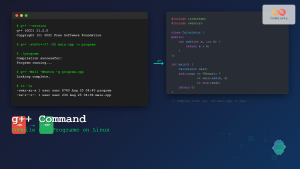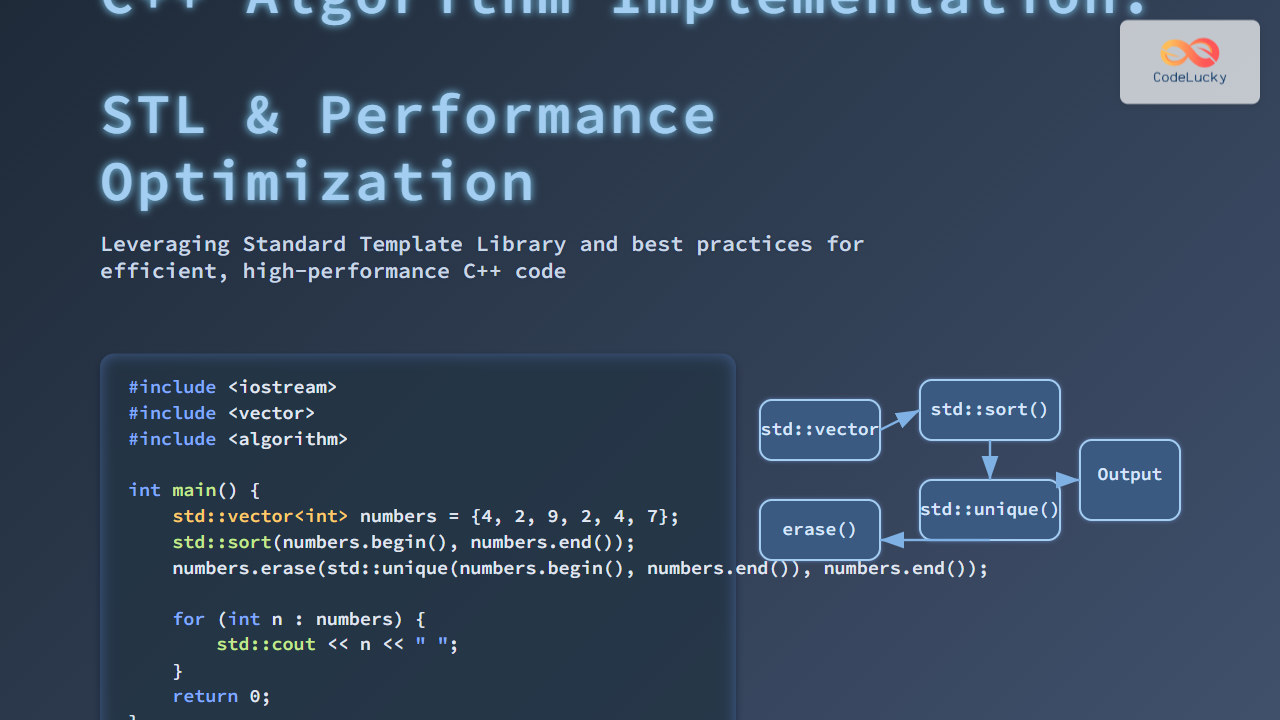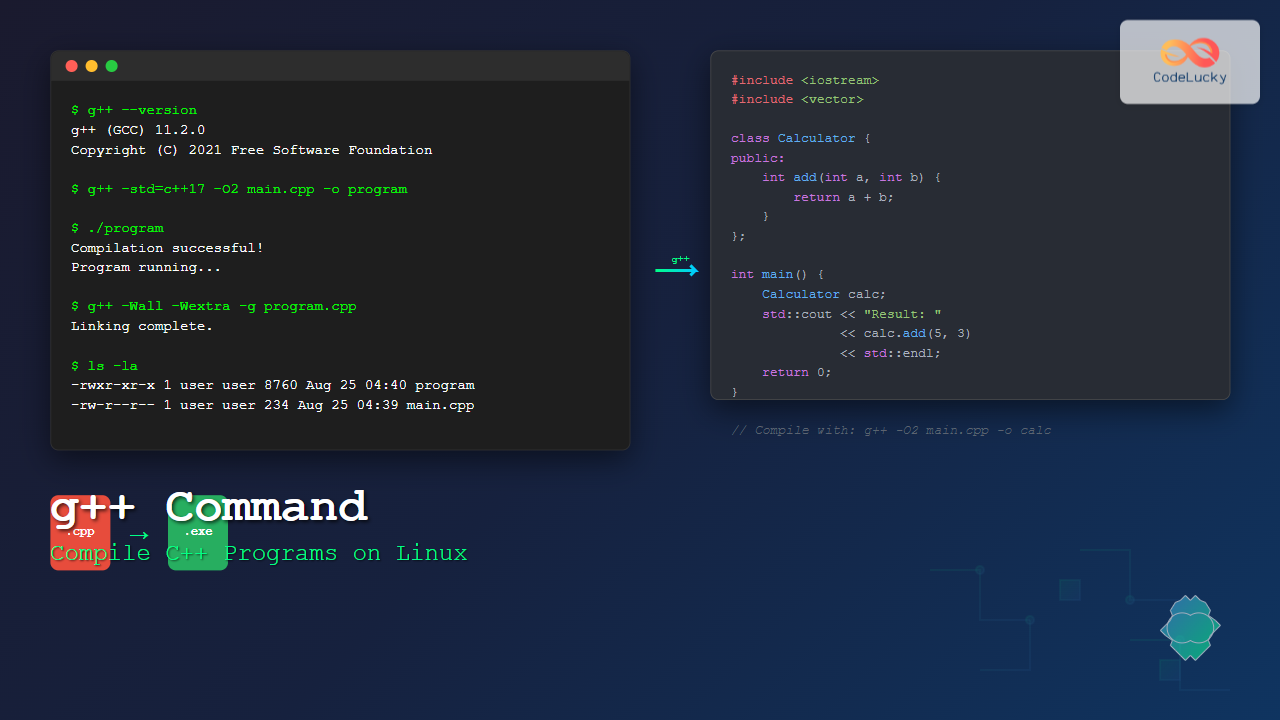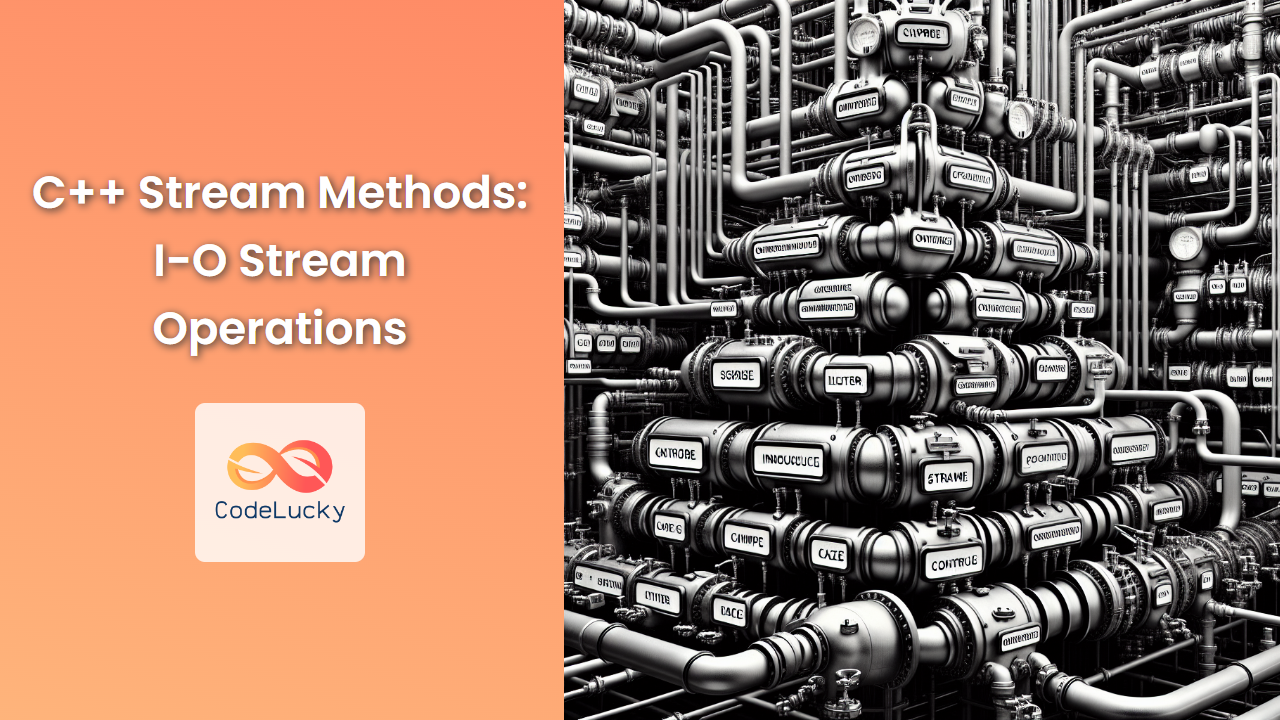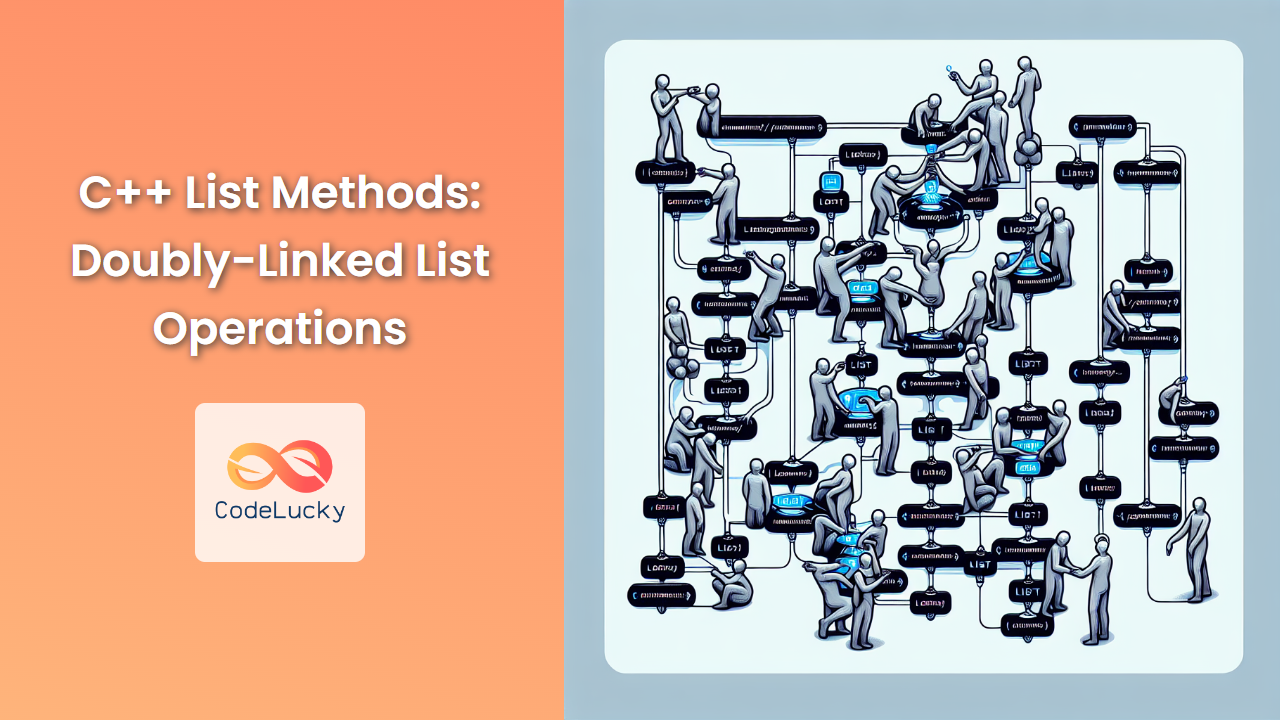C++ has long been a powerhouse in the world of programming, but it's not without its challenges. One of the most significant hurdles developers face is managing large codebases efficiently. Enter C++20's modules – a game-changing feature that promises to revolutionize how we organize and structure our C++ code. 🚀
In this comprehensive guide, we'll dive deep into C++ modules, exploring their benefits, syntax, and real-world applications. By the end of this article, you'll have a solid understanding of how to leverage modules to create more maintainable, faster-compiling C++ projects.
What Are C++ Modules?
C++ modules are a new way to organize code that addresses many of the limitations of the traditional header and source file system. They provide a more robust and efficient method for declaring and defining components of your C++ program.
🔑 Key benefits of C++ modules include:
- Faster compilation times
- Better encapsulation
- Reduced header dependencies
- Improved code organization
- Enhanced build systems
Let's explore each of these benefits in detail and see how modules can transform your C++ development experience.
Syntax and Structure of C++ Modules
Before we dive into the advantages, let's look at the basic syntax of C++ modules. Here's a simple example of a module declaration:
// math_module.cpp
export module math;
export int add(int a, int b) {
return a + b;
}
export int subtract(int a, int b) {
return a - b;
}
To use this module in another file, you would write:
// main.cpp
import math;
int main() {
int result = add(5, 3);
return 0;
}
Notice the export keyword before the module declaration and the functions we want to make available outside the module. The import statement is used to bring the module's exported declarations into scope.
Faster Compilation Times
One of the most significant advantages of C++ modules is their potential to dramatically reduce compilation times. 🚀
Traditional C++ compilation involves processing header files multiple times, which can lead to long build times, especially for large projects. Modules, on the other hand, are processed once and cached, resulting in faster subsequent compilations.
Let's look at a practical example to illustrate this point:
// traditional_math.h
#ifndef TRADITIONAL_MATH_H
#define TRADITIONAL_MATH_H
int add(int a, int b);
int subtract(int a, int b);
#endif
// traditional_math.cpp
#include "traditional_math.h"
int add(int a, int b) {
return a + b;
}
int subtract(int a, int b) {
return a - b;
}
// main.cpp
#include "traditional_math.h"
int main() {
int result = add(5, 3);
return 0;
}
In this traditional approach, the compiler needs to process traditional_math.h twice: once for traditional_math.cpp and once for main.cpp. Now, let's compare this with the modular approach:
// math_module.cpp
export module math;
export int add(int a, int b) {
return a + b;
}
export int subtract(int a, int b) {
return a - b;
}
// main.cpp
import math;
int main() {
int result = add(5, 3);
return 0;
}
With modules, the compiler processes math_module.cpp once, creating a compiled module interface that can be quickly imported by main.cpp. This approach can lead to significant time savings, especially in larger projects with many interdependencies.
Better Encapsulation
C++ modules provide superior encapsulation compared to traditional header files. In a module, only explicitly exported declarations are visible to the outside world, giving you fine-grained control over your API.
Consider this expanded module example:
// advanced_math.cpp
export module advanced_math;
// Internal helper function, not exported
double square(double x) {
return x * x;
}
export double power(double base, int exponent) {
double result = 1.0;
for (int i = 0; i < exponent; ++i) {
result *= base;
}
return result;
}
export double hypotenuse(double a, double b) {
return std::sqrt(square(a) + square(b));
}
In this module, square is an internal helper function that's not exported. It can't be accessed outside the module, providing better encapsulation than traditional C++ where all functions in a header file are typically visible.
Reduced Header Dependencies
C++ modules significantly reduce the problem of header dependencies. With traditional C++, if a header file changes, all files that include it (directly or indirectly) need to be recompiled. Modules, however, provide a clear separation between interface and implementation.
Let's illustrate this with an example:
// geometry_module.cpp
export module geometry;
import <cmath>; // Standard library modules
export struct Point {
double x, y;
};
export double distance(const Point& p1, const Point& p2) {
double dx = p2.x - p1.x;
double dy = p2.y - p1.y;
return std::sqrt(dx*dx + dy*dy);
}
// main.cpp
import geometry;
#include <iostream>
int main() {
Point p1 = {0, 0};
Point p2 = {3, 4};
std::cout << "Distance: " << distance(p1, p2) << std::endl;
return 0;
}
In this example, main.cpp only needs to import the geometry module. It doesn't need to know about or include <cmath>, which is used internally by the geometry module. This reduces the coupling between different parts of your codebase and can lead to faster compilation times and easier maintenance.
Improved Code Organization
Modules allow for better code organization by providing a clear and explicit way to define the public interface of a component. This can lead to more maintainable and understandable codebases.
Let's look at a more complex example to illustrate this:
// data_processing.cpp
export module data_processing;
import <vector>;
import <algorithm>;
import <numeric>;
export class DataSet {
public:
void addValue(double value) {
data.push_back(value);
}
double mean() const {
if (data.empty()) return 0.0;
return std::accumulate(data.begin(), data.end(), 0.0) / data.size();
}
double median() const {
if (data.empty()) return 0.0;
auto sortedData = data;
std::sort(sortedData.begin(), sortedData.end());
size_t mid = sortedData.size() / 2;
return sortedData.size() % 2 == 0
? (sortedData[mid-1] + sortedData[mid]) / 2.0
: sortedData[mid];
}
private:
std::vector<double> data;
};
// main.cpp
import data_processing;
#include <iostream>
int main() {
DataSet ds;
ds.addValue(1.0);
ds.addValue(2.0);
ds.addValue(3.0);
ds.addValue(4.0);
ds.addValue(5.0);
std::cout << "Mean: " << ds.mean() << std::endl;
std::cout << "Median: " << ds.median() << std::endl;
return 0;
}
In this example, the data_processing module encapsulates all the logic for the DataSet class. The main program only needs to import this module to use the DataSet class, without worrying about the underlying implementation details or dependencies.
Enhanced Build Systems
C++ modules can lead to more robust and efficient build systems. With traditional C++, build systems often need to parse header files to determine dependencies, which can be error-prone and time-consuming. Modules provide explicit information about dependencies, making it easier for build systems to determine what needs to be rebuilt when changes occur.
Here's a simple example of how module dependencies might be represented in a build system:
# Makefile
CXX = g++
CXXFLAGS = -std=c++20 -fmodules-ts
all: main
geometry.o: geometry_module.cpp
$(CXX) $(CXXFLAGS) -c geometry_module.cpp -o geometry.o
main.o: main.cpp geometry.o
$(CXX) $(CXXFLAGS) -c main.cpp -o main.o
main: main.o geometry.o
$(CXX) $(CXXFLAGS) main.o geometry.o -o main
clean:
rm -f *.o main
This Makefile clearly shows the dependencies between modules and object files, making the build process more transparent and easier to manage.
Best Practices for Using C++ Modules
As with any new feature, it's important to use C++ modules effectively. Here are some best practices to keep in mind:
-
Keep modules focused: Each module should have a clear, single responsibility. Don't try to pack too much functionality into a single module.
-
Use explicit exports: Only export what's necessary for the module's public interface. Keep implementation details private.
-
Leverage module partitions: For larger modules, use module partitions to organize related functionality.
-
Be mindful of circular dependencies: While modules can help reduce circular dependencies, they don't eliminate them entirely. Design your module structure carefully.
-
Gradually adopt modules: When working with existing codebases, consider gradually adopting modules rather than trying to convert everything at once.
Let's look at an example of using module partitions:
// math_module.cpp
export module math;
export import :basic;
export import :advanced;
// math_basic.cpp
export module math:basic;
export int add(int a, int b) {
return a + b;
}
export int subtract(int a, int b) {
return a - b;
}
// math_advanced.cpp
export module math:advanced;
import :basic;
export int multiply(int a, int b) {
int result = 0;
for (int i = 0; i < b; ++i) {
result = add(result, a);
}
return result;
}
// main.cpp
import math;
int main() {
int result = add(5, 3);
int product = multiply(4, 7);
return 0;
}
In this example, we've split the math module into basic and advanced partitions. The main math module file re-exports these partitions, providing a unified interface to users of the module.
Challenges and Considerations
While C++ modules offer many benefits, they also come with some challenges:
-
Tooling support: As of 2023, not all compilers and build systems fully support C++ modules. Check your toolchain's compatibility before adopting modules in production code.
-
Learning curve: Modules introduce new syntax and concepts that developers need to learn and understand.
-
Migration: Converting existing codebases to use modules can be a significant undertaking.
-
Interoperability: Modules need to coexist with traditional header-based code, which can sometimes lead to complexity.
Despite these challenges, the benefits of C++ modules make them a valuable addition to the language, especially for new projects or when modernizing existing codebases.
Conclusion
C++ modules represent a significant step forward in C++ code organization and compilation efficiency. They offer faster compilation times, better encapsulation, reduced header dependencies, improved code organization, and enhanced build systems.
While adopting modules may come with some challenges, particularly for existing codebases, the long-term benefits make them a compelling feature for C++ developers to explore and adopt.
As the C++ ecosystem continues to evolve and tooling support improves, we can expect to see more widespread adoption of modules in C++ projects. By understanding and leveraging this powerful feature, you can write more maintainable, efficient, and organized C++ code.
So, are you ready to modernize your C++ development with modules? The future of C++ code organization is here, and it's modular! 🚀📦
Remember, as with any new technology, practice and experimentation are key to mastering C++ modules. Start small, perhaps with a new component in an existing project, and gradually expand your use of modules as you become more comfortable with them. Happy coding!








